UDATED MAY 3, 2022

After 40 plus years of fighting to make it so, the religious right is poised to get their most sought-after prize, the overturn of the Roe v Wade Supreme Court decision affirming a woman’s right to abort an unwanted pregnancy. But if and when the Supreme Court overturns the Roe v Wade decision, abortion procedures are not the only thing that might be outlawed. There are other rights and procedures that are now legal and accepted as a common practice that can become illegal and unacceptable.
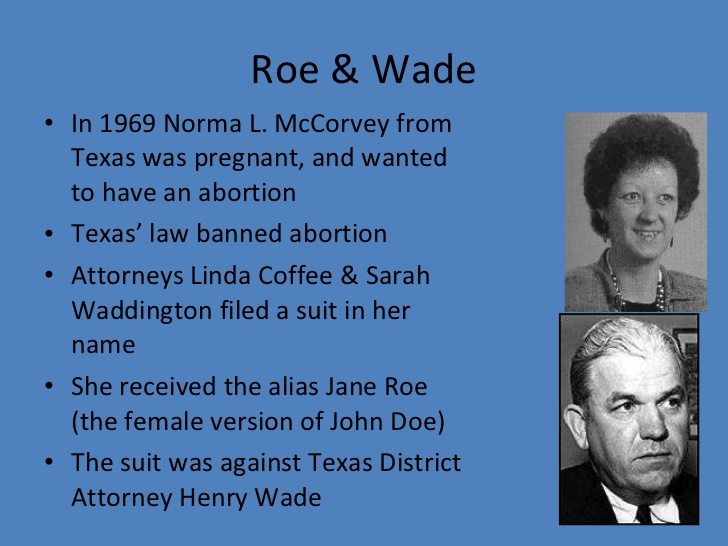
In 1973 Roe v Wade ruled that a woman’s right to an abortion came from the 14th Amendment’s Due Process Clause right to privacy. The ruling stated that this right must be balanced against the state’s interests in regulating abortions, protecting women’s health, and protecting the potentiality of human life.
There was a legal precedent for the Roe v Wade decision. In 1965 the Supreme Court in Griswold v. Connecticut struck down a Connecticut law that limited access to birth control. The Court held that the Bill of Rights and the Due Process Clause of the 14th Amendment implicitly created a “zone of privacy.” The Court said Connecticut’s ban on contraceptive use violated the privacy rights of a marital relationship. That same theory was extended to contraceptive use by non-married people, and with Roe, the court ruled that the fundamental right to privacy encompassed a woman’s right to decide, along with her family and her doctor, whether or not to continue a pregnancy.
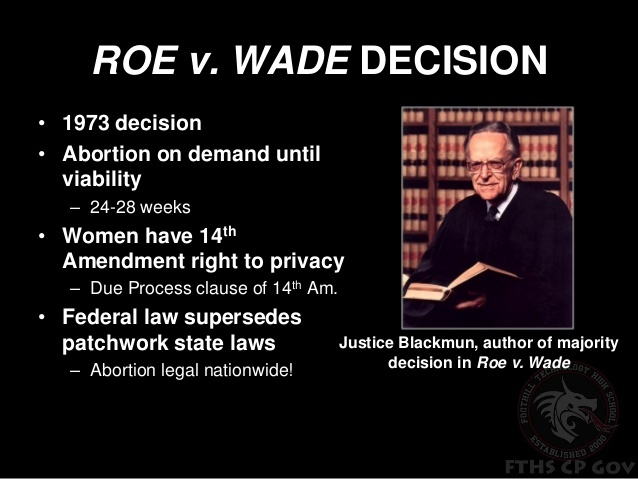
A future Supreme Court ruling that overturns Roe v Wade on the theory that these privacy zones, in fact, don’t exist, could also mean that there is no constitutional right to birth control either. This could cause a domino effect causing cases like Lawrence v. Texas, which invalidated a Texas law that criminalized sex between two men based on the same right to privacy, to be reversed as well.
Because no state or federal court ruling has ever declared that the U.S. Constitution specifically outlaws the abortion procedure in America, a reversal of Roe v Wade would mean individual states would have the option to allow or disallow abortion procedures. In some states, like New York and California, abortion will continue to be legal even if Roe is overturned. Other blue states will pass legislation to remove pre-Roe anti-abortion laws from the books so that the procedure will become legal. This will not be the case in all southern states and some mid-western red states, women living in these states will have little to no control over what happens to their bodies once a pregnancy has occurred.
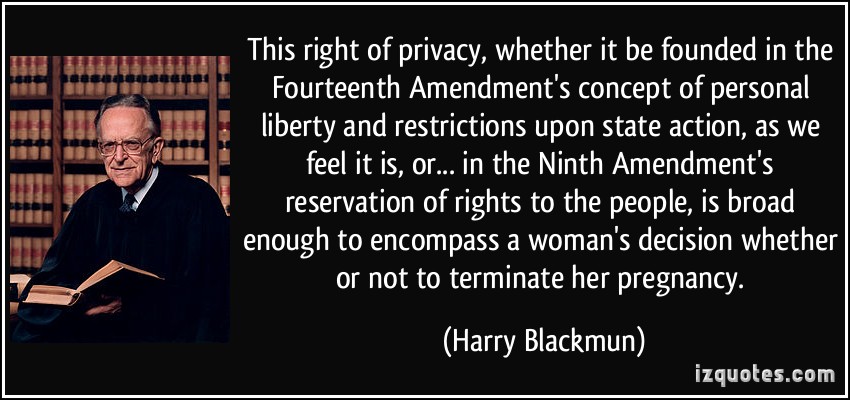
The states’ option to allow or not allow the abortion procedure, is the reason why the procedure itself should not be the only area of concern over reversing Roe. Roe v Wade affects the viability of some state-sponsored personhood legislation.
For over a decade anti-abortion advocates have been pushing person-hood legislation, which says a person with all rights due under the Constitution exists at the moment a sperm fertilizes an egg. Anti-abortion advocates claim that since many forms of hormonal birth control — including the Pill and the IUD — prevent fertilized eggs from implanting in the uterus that this is in effect killing a person who would otherwise live. Under this theory, common in-vitro fertilization procedures where some embryos are implanted and others are not would also amount to murder for the embryos not implanted. According to science and medical facts, more than half of fertilized eggs don’t implant naturally, which is one reason why the medical community defines pregnancy as beginning at implantation, not fertilization.
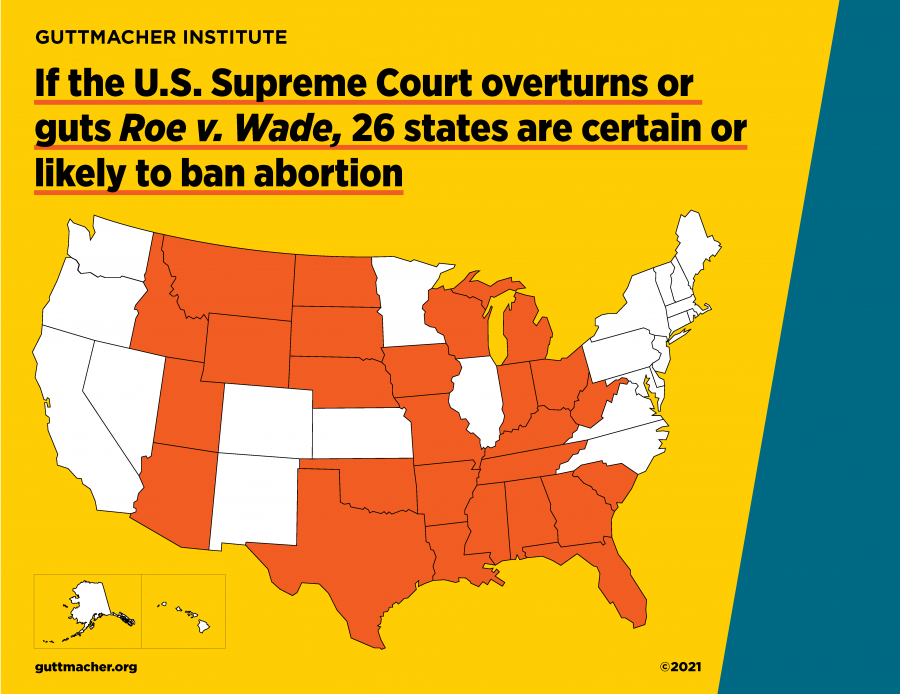
Person-hood laws have been on many state ballots as referendums, but even when they are successful they can’t be implemented. Because Roe v Wade’s equal protection of abortion rights means that their implementation would be illegal. A reversal of Roe v Wade means some women might find that some common forms of contraception are no longer legal in their state. This would not be based on scientific or medical facts, but because of how anti-abortion legislators claim they work.
Also, post-Roe v Wade anyone who helps a woman obtain an illegal abortion — including doctors — and even the women themselves may also become subject to punishment. Anti-abortion activists claim they don’t support criminalizing women for having abortions, but women who are suspected of inducing their abortions already are. Former President Trump himself said that “some form of punishment” should befall women who end pregnancies.
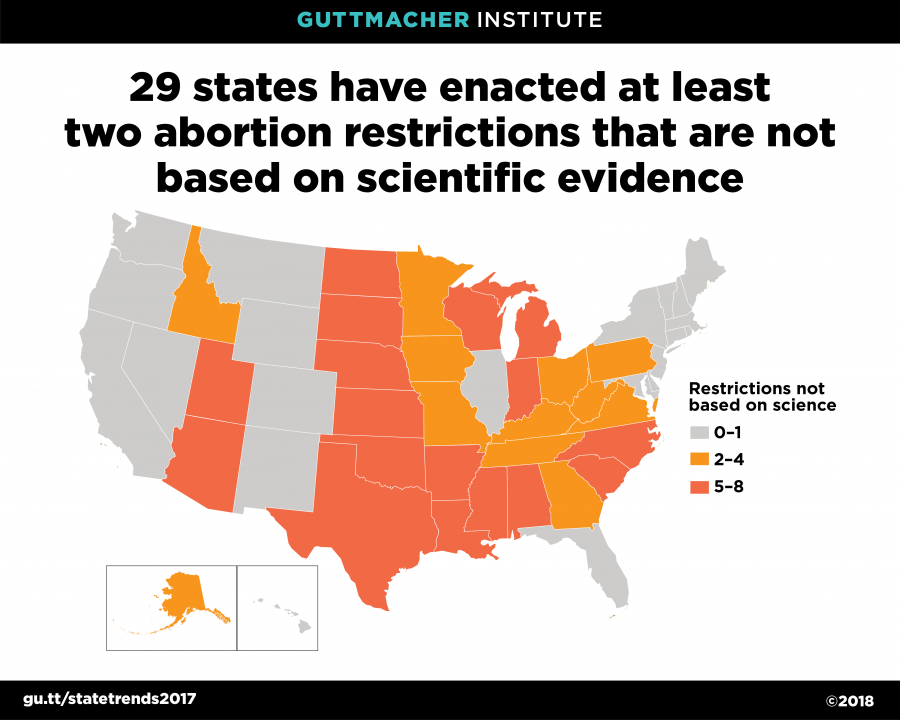
Because of technology if Roe is overturned, America shouldn’t automatically be subject to the pre-Roe v Wade abortion stories of horror and self-mutilation. Thanks to Misoprostol, the most common abortion-inducing medication, along with a growing network of people who can help pregnant women determine the appropriate dosing, self-induced abortions should be safe. But in a new overturned Roe v Wade America state laws could prevent the sale or use of any abortion-inducing drugs. Many American women already self-induce their abortions, because the anti-abortion movement has so effectively restricted abortion access in many states.
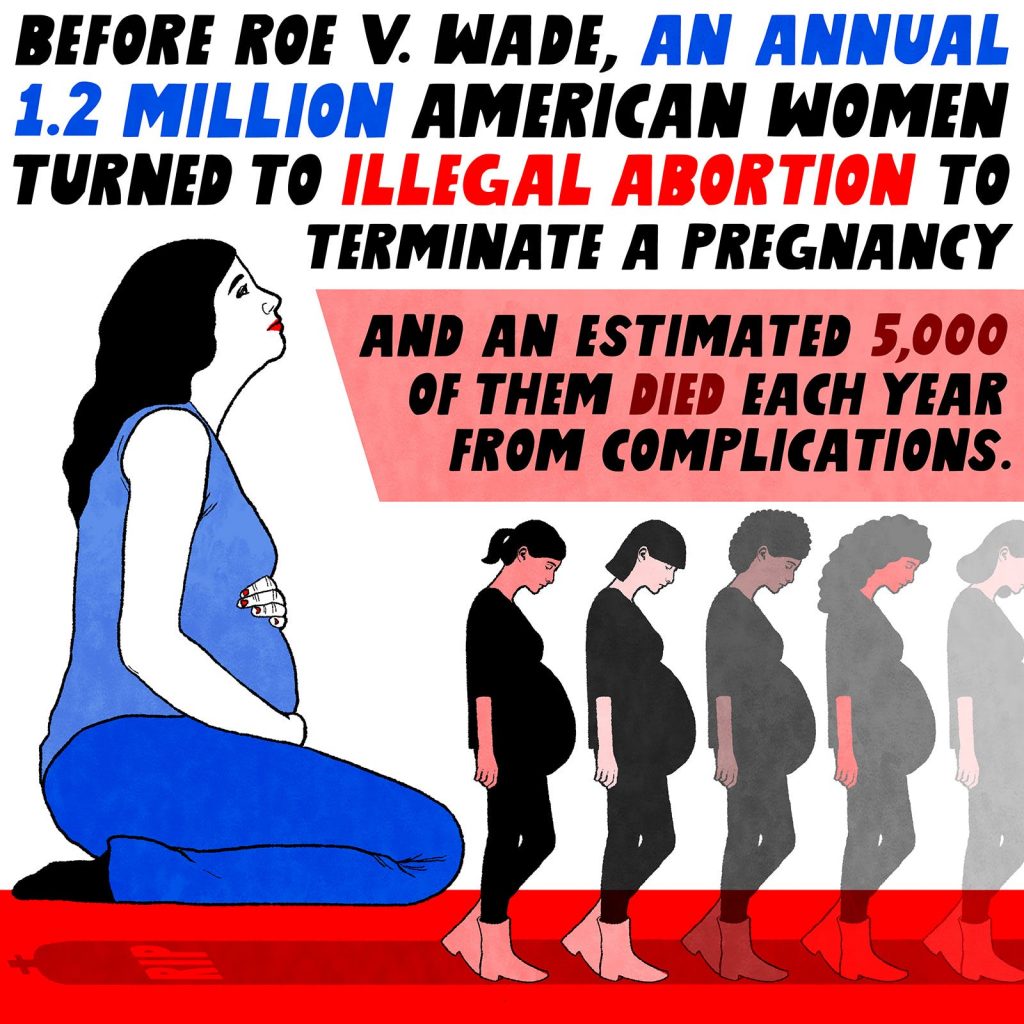
Unfortunately, in a post-Roe v Wade world, anti-abortion activists might be able to get state laws like the ones struck down in the aforementioned Griswold v. Connecticut, back on the books making access to birth control and abortion drugs very difficult if not impossible for some women. This in turn will lead to more devastation because women will do whatever they’ve heard works, whether that’s inserting a foreign object through their cervix, buying black-market drugs, throwing themselves downstairs, douching with bleach, or taking up whatever method they’ve heard about through the grapevine or read on an Internet message board.
The bottom line is, that the right of women to choose to have an abortion is not the only right tied to the American Constitution’s 14th Amendment’s Due Process Clause, specifically to the concept of the right to privacy the 14th Amendment protects. If Roe v Wade can be reversed because abortion procedures are not a federally protected right, it could also mean that access to abortion and birth control medication is not a federally protected right, it could also mean that sex between 2 people of the same sex is no longer a federally protected right, and it could also mean the freedom for both women and men to control what happens with their bodies is no longer a federally protected right.
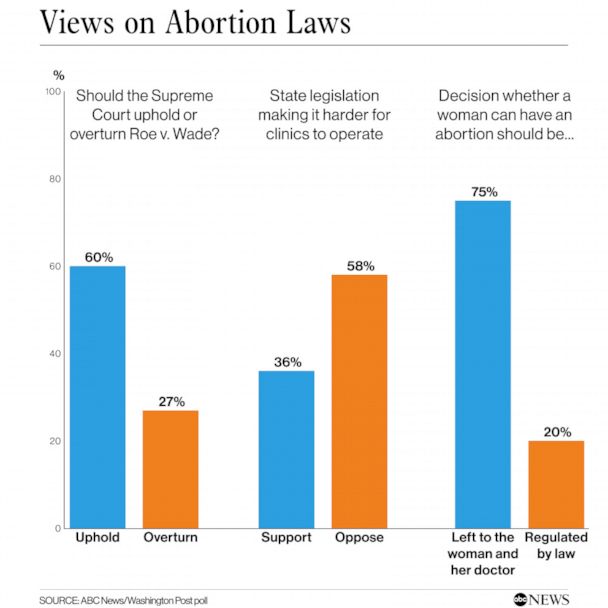
ABC News/Washington Post 2021
In other words, these federal rights become state rights left to 50 different legislatures to determine if they should even exist at all. This is the first step in returning America to the days of legalized discrimination. Making it illegal for two people of different races to marry in some states while it was legal in others, making it illegal for two men to have sex in some states and while legal in others, and some states recognizing same-sex marriage and others like my home state of Georgia who did not until forced to. Hopefully, for the sake of a continually growing, diversified, and prosperous America the Supreme Court will respect stare decisis, exercise judicial wisdom, and never vote to overturn Roe v Wade!



